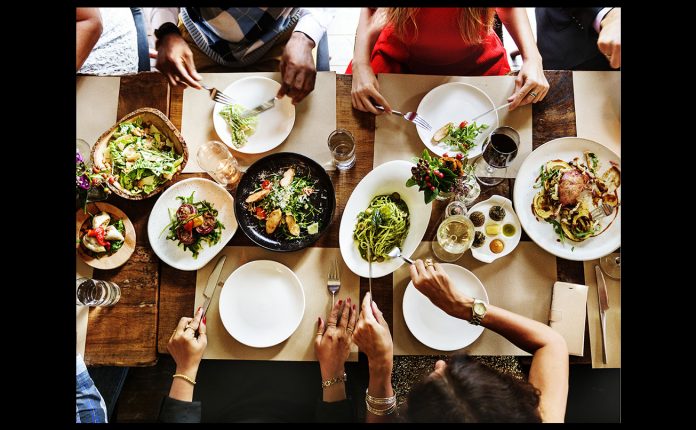Thinking About Addiction Recovery
When most people think about substance abuse treatment and recovery, their first thoughts turn to the types of services that help an addicted person get clean (detoxification).
Next, they likely think about substance abuse counselors working with a client, individually or in a group setting, or 12-step programs to provide support in helping them stay clean and sober. Eating well is another part of substance abuse treatment and ongoing recovery, and it’s an important part of healing for the body.
Substance Abuse & Lack of Proper Nutrition
Substance abuse can cause a number of problems for those affected by it. Damaged relationships, job issues, financial problems and legal difficulties are some of the troubles that come along with it. Lack of proper nutrition is another, albeit less well known, issue plaguing those with substance abuse and addiction issues.
Someone who is actively involved in abusing drugs or alcohol is at higher risk for lack of proper nutrition for a number of reasons:
- Mental health concerns, which can lead to substance abuse or stem from the use of chemicals, can affect diet.
- The recurring cycle of drug use and abuse leaves less time and energy to shop for and prepare high-quality, nutritious meals.
- Certain types of drugs can lower or increase appetite.
Mental Illness Influences Diet
It’s not uncommon for someone who has a substance abuse problem to experience symptoms of anxiety or depression. When someone feels anxious or depressed, they may not have much of an appetite and may stop eating regular meals. Alcohol users may find that they “feel full” from their alcohol consumption and aren’t as hungry as someone who abstains or drinks in moderation (one drink per day for women and men over age 65, and two drinks per day for men under age 65).
People experiencing anxiety or depression don’t always experience a decrease in appetite. Some of them want to eat more as a way of comforting themselves. During times when someone is looking to self-soothe, they are not as likely to choose a healthy salad as something that is higher in fat or sugar. This type of eating pattern may contribute to weight gain and does not provide healthy nutrients.
Lack of Time or Energy to Prepare Nutritious Meals
Someone who is engaged in a cycle of addiction and is making sure that they have access to their drug of choice regularly isn’t necessarily going to have the time or energy to keep on top of eating well. More than likely, they will eat something quick that’s easily available. These choices are often fast or prepared foods that are higher in fat, salt and sugar.
Drugs Have an Impact on Appetite
Stimulant drugs, such as cocaine, crack cocaine and methamphetamine produce feelings of euphoria in users. They also decrease appetite, making it difficult to be interested in healthy eating.
Opioid abuse also leads to reduced appetite. Opioids are powerful pain medications including oxycodone, hydrocodone, hydromorphone, meperidine, fentanyl and methadone. The user first experiences a feeling of ecstasy, followed by a feeling of deep relaxation and sleepiness.
Nutrition as Part of Substance Abuse Treatment & Recovery
Clients who enter a residential treatment program for substance abuse start their recovery process on a schedule that includes getting enough sleep and opportunities for physical activity. It also includes nutritious, well-balanced meals.
Following a balanced diet during drug and alcohol addiction treatment gives clients the following benefits:
- It gives the body the nutrients it needs for energy to participate in activities and counseling sessions and to heal from poor nutritional choices made previously.
- Eating at regular intervals helps to stabilize blood sugar and mood. It’s also a good strategy for managing stress
- Clients who are introduced (or reintroduced) to good foods, prepared with care and attractively presented, may be less likely to have cravings for drugs and alcohol.
- It sets the foundation for a healthy lifestyle in recovery that includes eating a variety of nutritious foods.
Cravings in Early Recovery
In the early stages of recovery from substance abuse, clients may have difficulty reading the signals their bodies are sending them. They may not be able to tell when they are hungry, as opposed to experiencing a craving for alcohol or drugs. As they progress through their treatment and spend more time in sobriety, it will become easier to separate signs of hunger from cravings.
It’s important for clients not to turn their desire for alcohol or drugs into a craving for sweets instead. Eating sugary foods gives a burst of energy for a short time, but it doesn’t last. There are better ways to self-soothe than going for chocolate or cookies to deal with a craving, plus there is the possibility of weight gain to deal with.
Following a balanced diet, like remaining sober, is something that needs to be taken on a day-by-day basis. There are many rewards for eating well, and Great Oaks Recovery Center provides nutritious meals to clients as part of its addiction treatment programs.



























